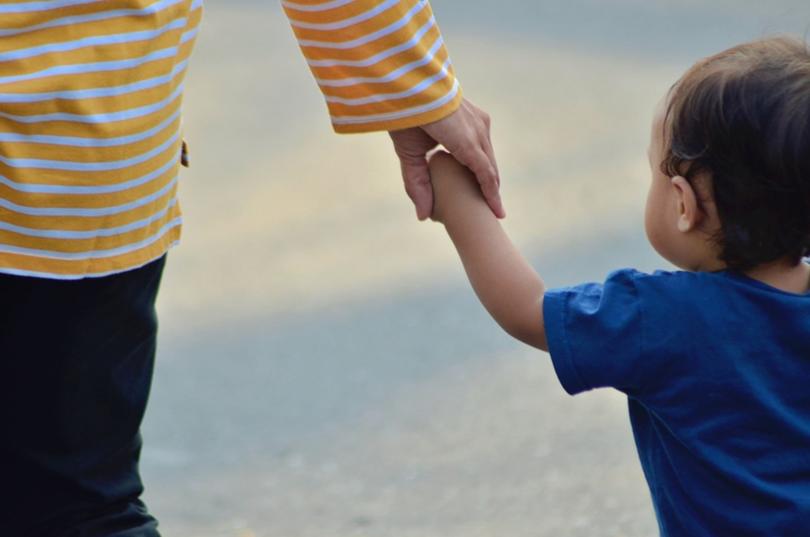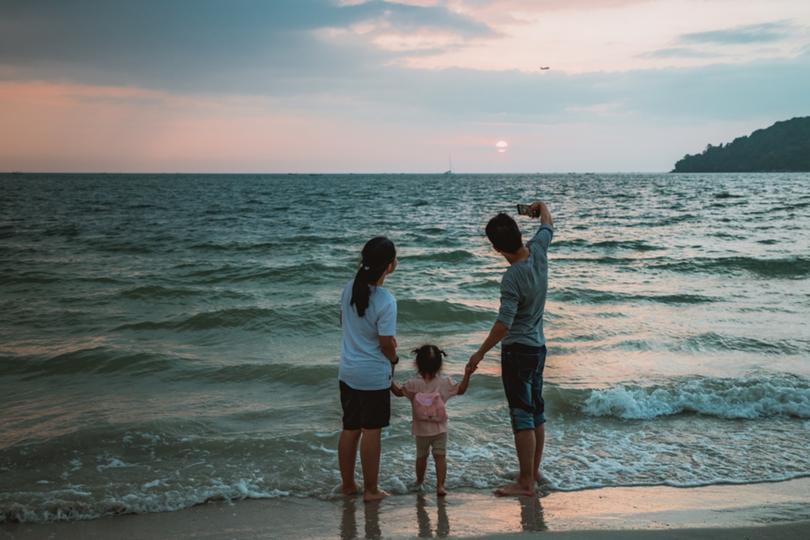Half of young Australia say they can’t afford kids - it’s a big problem
Cost of living pressures are having unexpected contraceptive effects, with more than half of young Aussies saying they are putting off having children because it would cost too much.

More than half of young Australians say they are putting off having children because it would cost too much money, according to new research that underlines the growing impact of the cost of living crisis.
Some 54 per cent of respondents aged 18-34 told pollsters from RedBridge Group their personal financial situation made them delay starting a family.
Women were more likely to say they were concerned about how to pay for a baby in the survey, which RedBridge chief Kos Samaras said showed cost of living concerns to be at their highest in decades and reflected a sharp climb in those saying they were putting off children from around 20 per cent historically.
Sign up to The Nightly's newsletters.
Get the first look at the digital newspaper, curated daily stories and breaking headlines delivered to your inbox.
By continuing you agree to our Terms and Privacy Policy.“We been seeing for several years an increasing number of younger people in this country expressing concerns that they cannot live the lifestyle or life that their parents did,” he said.
“And obviously, as a result of the last 18 months into the affordability crisis, it’s now manifested itself into many of them now choosing to not start a family.”

The data was no suprise to Lisa, a 29-year-old paralegal for a busy immigration law firm, and her husband Sean, who at 32 is on the way to finishing his surgical training.
The pair met at university in Wollongong, south of Sydney, and returned to live there a few years ago when they realised that without the help of the bank of mum and dad they had no chance at a house in Australia’s toughest real estate market.
Until recently, building a family figured in their planning but in the past year they’ve come to the decision together that they don’t want to have children.
“We always thought it would happen some day, but when we sat down and looked at everything it kind of dawned on us that there wasn’t much point,” said Lisa, who didn’t want her surname published because she knows that their decision will upset members of their broader family.
“The way things are going we can see a good life for the two of us. But we can’t see how we could afford to have children. It would just be too hard.”
An increase in dual-income couples such as Lisa and Sean finding it hard to pay their bills was an unsettling factor in the current cost of living crisis, according to Mr Samaras.
“In the 1990s recession when I was entering the workforce the only problem was finding work. But if you had work, you were ok, it wasn’t too bad. And even for those with mortgages, okay, interest rates were high. But you can now buy a house that is 15 times the size of your annual wage and back then it was three or four times the size,” he said.
“So yes, it was hurting, but no one lost their homes. You weren’t seeing dual-income households queuing up at food banks.”

The research accords with similar work produced by Sydney University which charted young peoples’ changing attitudes to work coming out of the pandemic and found that 69 per cent of men and 76 per cent of women were most influenced by the cost of raising children in making plans for their families.
Author Elizabeth Hill, a professor of political economy at the Australian Centre for Gender Equality and Inclusion at work, said Australia’s declining birth rate needed a broad policy response.
“While having children is, of course, a very personal decision, our research shows that dynamics and so many parts of our economy and society are making it very difficult for younger people to feel confident about having children, or indeed having more children,” said Prof Hill.
“We need a really strong kind of policy response that builds economic security, and economic security across I guess, our markets for basic needs, such as housing and employment, but also those essential care services like early childhood education and care, paid parental leave.”
Cassandra Winzar, chief economist with the Committee for Economic Development Australia, said the cost of housing was the most pressing concern for young people.
“The biggest thing driving a lot of these concerns is cost of living more broadly, but particularly around housing,” she said.
“Most people if they’re going to start a family, they want to be in a stable house, in a stable job. So it’s not surprising at all to me that when we have such challenges like the rental market challenges, and people being able to purchase a house that people are putting off decisions like this. And so if we do actually want to kind of change the trajectory here, we need to look at some of those underlying factors.”

